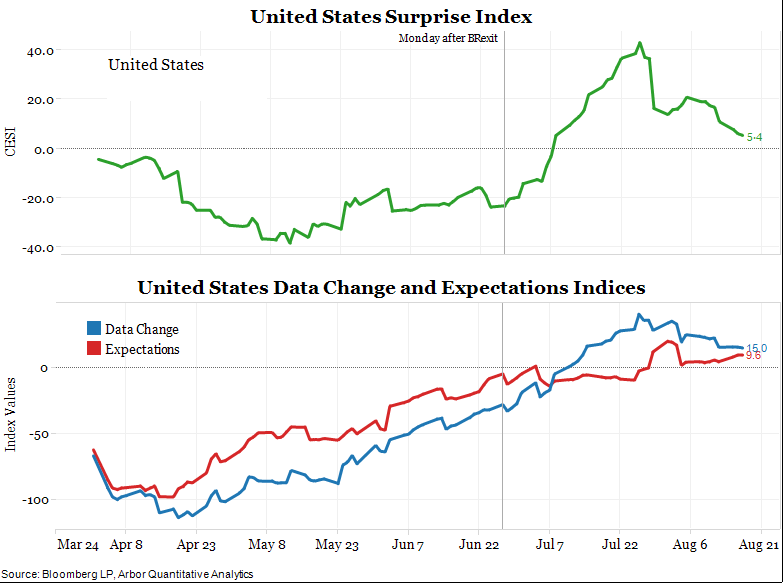In the upside-down world of financial markets, bad news is often good news.
Case in point: Brexit.
Speaking last week on our podcast, Jim Bianco of Bianco Research told listeners the Brexit vote on June 23rd may have been the most bullish catalyst for the US stock market so far this year where, after the initial shock, major market indices like the S&P 500 and the Dow Jones went straight vertical to new all-time record highs.
Why? Here's how Bianco framed the situation:
"If you accept the premise, which I believe, that markets are driven a lot by central bank policy and central bank stimulus, what happened with Brexit is that, by passing, it caused central banks all around the world to panic. Our central bank—the Federal Reserve—has now [from what the market expects] pushed off its next tightening for at least another year; you've had increased bond-buying programs out of Japan and out of the UK; you've had threats of more bond-buying coming from the ECB as well too, so, the bottom line is, if you induced a central bank panic towards more stimulus but you've had really no change in the economies since June 23rd, that's bullish for risk markets...and that's exactly what we've seen happen."
Some may push back against this and say, "Yeah, but US economic data has now started to surprise to the upside after languishing for over a year and a half. Just take a look at the Citigroup Economic Suprise Index, which shot up into positive territory in July."
We asked Bianco about this and he still wasn't having it.
"The Citi surprise index has gone up but if you look at a breakdown of it...at the economic estimates as one series and the actual economic results as another series...it's very clear that on Monday the 27th, the Monday after Brexit, all of the economists cut their forecasts but the economy didn't change... So, the Citi surprise index took off not because anything got better—nothing changed in the real economy—it was that all of the economists freaked out over Brexit and they cut their forecasts when they didn't need to. So, it's been the case that what's driven that index higher has been a downgrade of expectations, not that the economy has gotten better."
Though there have been some signs of stabilization and even improvement in the economic data recently (see blue line below), it is clear from the chart that the large spike in positive surprises is mostly a function of economists becoming more pessimistic in the wake of Brexit.
To find out more about Bianco Research or to request a free trial, visit their website by clicking here or listen to the full interview by logging in and clicking here.








